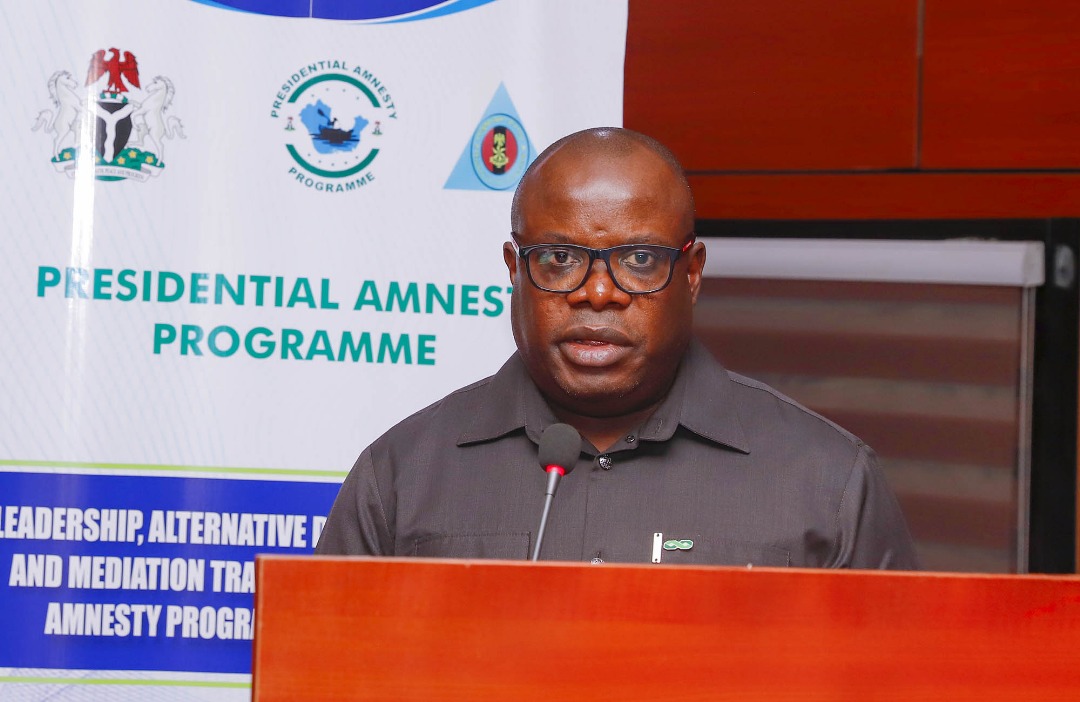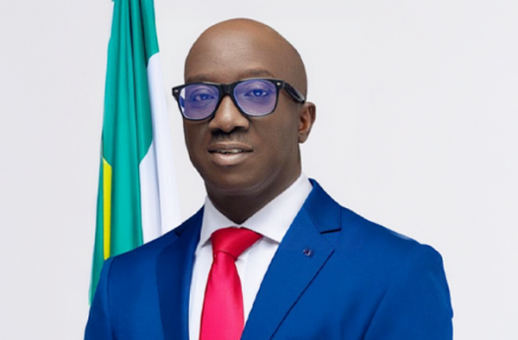News
JUST IN: Ini Edo Loses ‘Shanty Town’ Ownership Legal Battle To Chi Chi Nworah

Popular Nollywood actress, Ini Edo, has lost to Chineye ‘Chi Chi’ Nworah over the ownership of Netflix original, ‘Shanty Town.’
In a significant legal victory for the filmmaker and her production company GCM Giant Creative Media Limited, the Nigerian Trademark Registry and the Nigerian Copyright Commission ruled against Ini Edo.
This follows a series of legal battles initiated by Ini Edo and Minnie Empire Productions Limited (MEP), who attempted to claim ownership of the trademarks and copyrights associated with ‘Shanty Town.’
The Trademark Registry rejected Ini Edo and MEP’s petition regarding trademarks ‘Scar’ NG/TM/O/2023/121745 and ‘Shanty Town’ NG/TM/O/2023/97482 on January 10, 2024, declaring the petition baseless and without merit, and confirming Nworah’s exclusive ownership of these trademarks.
READ ALSO: VIDEO: Drama As Tinubu’s Minister Disrupts Event, Arrests Organiser
Ln July 24, 2024, the NCC dismissed a petition by Ini Edo and MEP concerning the cancellation of two copyright certificates issued to Chinenye Nworah for the literary work “Shanty Town” (Certificate Number LW10177) and the audiovisual work “Shanty Town” (Certificate Number CF1448).
The NCC found no legal grounds for the cancellation and upheld the validity of the certificates, confirming Mrs Nworah’s rightful ownership of these copyrights.
The legal team at Olisa Agbakoba Legal played a crucial role in securing these victories for Chinenye Nworah and GCM Giant Creative Media Limited.
READ ALSO:Why Six Banks Were Disqualified From FX Auction – CBN
This case demonstrates OAL’s commitment to protecting the rights of creative individuals and companies in the face of intellectual property disputes.
The ruling of the Trademark Registry and the decision of the NCC solidify Mrs Chinenye Nworah’s ownership of intellectual property in relation to the Netflix series; “Shanty Town”
The successful defence of these claims highlights the importance of protecting creative works and ensuring fair compensation for artists.
News
Christmas: Otuaro Preaches Peace, Unity In N’Delta, Hails Tinubu’s Support For PAP

The Administrator of the Presidential Amnesty Programme (PAP), Dr Dennis Otuaro, has extended warm Christmas greetings to the people of the Niger Delta, calling for renewed commitment to peace, unity and communal harmony as the region prepares to enter the New Year.
Otuaro, in a message issued by his Special Assistant on Media, Mr Igoniko Oduma, thanked stakeholders, traditional rulers, ex-agitators, youths and communities across the Niger Delta for their sustained support for the PAP and for the administration of President Bola Ahmed Tinubu.
He described peace and unity as the bedrock upon which sustainable development in the Niger Delta must continue to be built, urging the people to remain steadfast in protecting the hard-earned stability currently enjoyed in the region.
“Peace and unity remain the strongest foundations for sustainable development. As a people, we must continue to reject violence and embrace dialogue, cooperation and mutual respect as we work collectively for the progress of our region.
READ ALSO:Otuaro Tasks Media On Objective Reportage
“I also express my profound appreciation to all stakeholders and the people of our region for your sustained support for the administration of His Excellency, President Bola Ahmed Tinubu, GCFR,” he said.
Otuaro noted that the PAP recorded significant milestones in 2025, including improved welfare for beneficiaries, enhanced educational and vocational opportunities, and strengthened reintegration outcomes, all aimed at empowering Niger Delta youths to contribute meaningfully to society.
He attributed these achievements to the visionary leadership of President Tinubu and the institutional support of the Office of the National Security Adviser (ONSA), which provides strategic guidance for the effective implementation of the programme.
Reflecting on the meaning of Christmas, the PAP boss described it as a season that embodies love, sacrifice, compassion and reconciliation, values that resonate deeply with the communal culture and shared heritage of the Niger Delta people.
READ ALSO:PAP Scholarship Scheme Vehicle For Better Future For Niger Delta —Otuaro
“Christmas reminds us of the power of love, sacrifice and togetherness. These values align naturally with the communal spirit of the Niger Delta, where collective responsibility, mutual support and shared progress have always defined our identity,” he added.
He urged beneficiaries of the Programme and residents of the region to celebrate the season with moderation and a renewed sense of responsibility to their communities.
Otuaro wished the people of the Niger Delta a Merry Christmas and expressed optimism that the New Year would usher in greater opportunities, peace and prosperity for the region and the nation at large.
“As we step into the New Year, I am confident that with continued unity, peace and collaboration, the Niger Delta will record even greater progress. I wish our people a Merry Christmas and a Happy, Prosperous New Year,” the PAP Administrator stated.
.
News
Okpebholo Slams ₦25bn Libel Suit On Edo PDP Chairman

Governor Monday Okpebholo of Edo State has given Dr. Anthony Aziegbemi, a seven-day ultimatum to pay ₦25 billion in damages over alleged defamatory statements.
In a letter by the governor’s counsel, Ray Okezie, and addressed to Aziegbemi, the PDP State Chairmen was also requested to publish a public apology in three national dailies over the alleged defamatory statements.
Aziegbemi was said to have allegedly accused the governor of using thugs and non-state actors to carry out official duties.
READ ALSO:Okpebholo Sympathises With Otaru, People of Auchi Over Tragic Tanker Fire Incident
“In the letter dated December 22, 2025, and titled ‘Demand for Damages and Apologies for Defamation of the Character of the Executive Governor of Edo State, Senator Monday Okpebholo,’ the PDP Chairman was said to have in a press statement of December 7, 2025 portrayed Okpebholo as an unintelligent, dishonest, and, lawless person.
“Accordingly, we have the instructions of our client to demand from you the sum of N25, 000,000,000.00 (Twenty Five Billion Naira only) being compensation for the damage you have inflicted on his reputation through your said press release.
“The above stated sum must get to our client within seven (7) clear days from the date of this letter. In addition, you are required within seven (7) days to publish a retraction of the said press release in three (3) National Newspapers which must include the Guardian and the Vanguard newspapers,” the letter partly reads.
The governor’s counsel threatened to proceed on legal action in any Nigerian court should the PDP State Chairman fail to comply with the demands
News
YULETIDE: UBTH CMD Charges Nigerians To Be Hopeful In Coming Year

The Chief Medical Director of the University of Benin Teaching Hospital (UBTH), Prof. Idia Ize-Iyamu has urged Nigerians to remain optimistic about the upcoming year, despite current challenges.
Prof. Ize-Iyamu expressed optimism that the coming year would bring improvements for everyone.
The CMD made these remarks during the Nine Lessons and Carol night /End of Year Party organized by UBTH for staff and students held in Benin.
Prof. Ize-Iyamu encouraged everyone to place their trust solely in Christ to overcome the numerous challenges facing the country.
READ ALSO:UBTH CMD Laments Inadequate Heath Workers, As Minister Promises Increased Funding
She expressed her gratitude to the hospital community for their support during her first four months in office.
Prof. Ize-Iyamu assured them that the coming years hold many opportunities and that hope in Christ would transform lives daily, just as Christ’s birth brings joy and is the reason for the season.
She also extended her appreciation to everyone in the spirit of the season.
READ ALSO:UBTH Marks 2023 World Antimicrobial Resistance Awareness Week
“I want to appreciate everyone in the spirit of the season. Our commitment to excellence and professionalism remains at UBTH.
“UBTH CARES and just like Christ cares. As we celebrate Christ and the season. Let’s hope on him. When you have Christ, you have hope.We are hopeful that the coming year will be better as a people and institution,” Ize-Iyamu said.
The ceremony’s highlight featured a visit to the hospital wards where the CMD distributed gifts to patients and newborns, with management, staff, and students in attendance.

 News3 days ago
News3 days agoPHOTOS: New Era In Furupagha-Ebijaw As Okpururu 1 Receives Staff Of Office

 News3 days ago
News3 days agoUBTH CMD Marks 120 Days In Office, Expresses Commitment To Providing Conducive Working Environment

 News3 days ago
News3 days agoFG Declares Public Holidays For Christmas, New Year Celebrations

 News3 days ago
News3 days agoOPINION: Gumi And His Terrorists

 News3 days ago
News3 days agoFIRS Confirms NIN As Tax ID

 News3 days ago
News3 days agoOPINION: My Man Of The Season

 Metro2 days ago
Metro2 days agoFintiri Pardons Man Sentenced To Death For ‘Killing Herdsman In Self-defence’, Others

 News3 days ago
News3 days agoOPINION: Christmas And A Motherless Child

 News3 days ago
News3 days agoKWAM 1 Withdraws From Awujale Race, Ends Court Challenge

 News2 days ago
News2 days agoJUST IN: Kano Lawmaker, Sarki Aliyu Daneji, Dies Hours After Colleague’s Passing


























